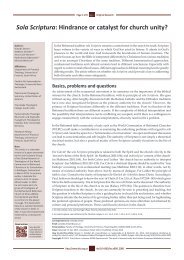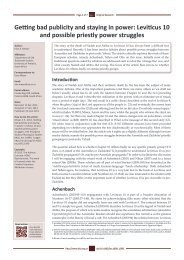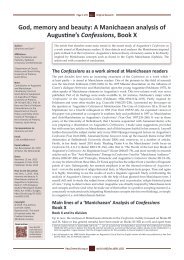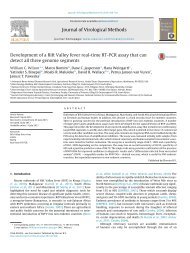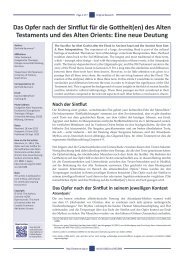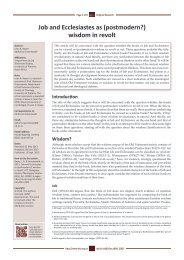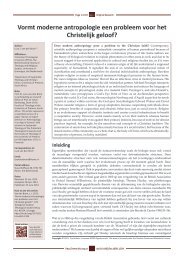View/Open - Repository.up.ac.za - University of Pretoria
View/Open - Repository.up.ac.za - University of Pretoria
View/Open - Repository.up.ac.za - University of Pretoria
Create successful ePaper yourself
Turn your PDF publications into a flip-book with our unique Google optimized e-Paper software.
THE LAW OF PURCHASE AND SALE<br />
1065<br />
was known, the undivided share in the common property could<br />
be calculated by reference to the Sectional Titles Act 95 <strong>of</strong> 1986.<br />
However, the principles relating to generic sales were applied<br />
by both courts in Orkin. It was <strong>ac</strong>cordingly found that a reference<br />
to a flat number in an existing building was sufficient to describe a<br />
unit in terms <strong>of</strong> the relevant statutory requirements. As to the<br />
undivided share in the common property, it was held that such<br />
share could be ascertained under the Act without reference to the<br />
parties, and that this f<strong>ac</strong>t rendered the property description<br />
legally adequate.<br />
One should take into <strong>ac</strong>count that the merx in Orkin could have<br />
been described adequately only if the parties intended a generic<br />
sale. With this type <strong>of</strong> sale, a valid contr<strong>ac</strong>t <strong>of</strong> sale comes into<br />
being without an adequate description <strong>of</strong> the merx, because it is<br />
determined through individuali<strong>za</strong>tion after the conclusion <strong>of</strong> the<br />
contr<strong>ac</strong>t. It is, therefore, unnecessary to provide a complete<br />
description <strong>of</strong> the merx where the parties intend this type <strong>of</strong> sale.<br />
Such intention must be clear from the wording <strong>of</strong> the contr<strong>ac</strong>t. A<br />
court cannot draw such an inference without further ado. In Orkin,<br />
there was no indication that the parties intended to conclude this<br />
type <strong>of</strong> sale. As the merx in Orkin came into being only after the<br />
opening <strong>of</strong> the sectional register, it did not exist at the time <strong>of</strong><br />
conclusion <strong>of</strong> the contr<strong>ac</strong>t. The flat numbers do not identify the<br />
merx and extrinsic evidence is necessary to determine it. Also,<br />
the authorities referred to in Orkin (Clements v Simpson 1971 (3)<br />
SA 1 (A); Odendaalsrus Municipality v New Nigel Estate Gold<br />
Mining Co Ltd 1948 (2) SA 656 (O); Glover v Bothma 1948 (1) SA<br />
661 (W); Van der Merwe v Cloete & another 1950 (3) SA 228 (T))<br />
did not deal with generic sales. Rather, the merces in those cases<br />
existed already <strong>up</strong>on the conclusion <strong>of</strong> the relevant contr<strong>ac</strong>ts<br />
(see Gerrit Pienaar ‘Phone-A–Copy Worldwide (Pty) Ltd v Orkin &<br />
another 1986 (1) SA 729 (A) — Formaliteite met Betrekking tot<br />
Koopkontrak van ’n Deeltiteleenheid’ (1986) 49 THRHR 479).<br />
In conclusion, in Rasmussen, Schwartman J held that despite<br />
the three-dimensional requirement to describe a unit on a sectional<br />
plan (s 5(3)(d) read with s 5(4)(a) <strong>of</strong> the Sectional Titles<br />
Act), it was unnecessary to do so in describing a unit in a deed <strong>of</strong><br />
sale. In the latter, such a three-dimensional requirement is<br />
directory and not peremptory (para [10.2]). Regarding the<br />
description (or the l<strong>ac</strong>k <strong>of</strong> it) <strong>of</strong> an undivided share in the common<br />
property, the court reasoned that the undivided share in the<br />
common property is determined by operation <strong>of</strong> law (s 32



